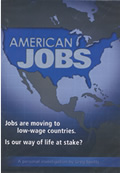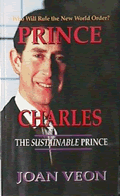Related
Articles:
Global Taxes Looming, Watch Your Wallet
Other
Veon
Articles:
US Leaders Highlight World Economic Forum Agenda
Global Taxation And Tax Harmonization
Does The
Global Economy Need a Global Currency?
THE WORLD ECONOMIC FORUM FORGES THE FUTURE OF THE WORLD
By
Joan Veon
February 3, 2005
NewsWithViews.com
DAVOS, SWITZERLAND - For the last five days, over 2200 participants from 96 countries met in the mountains of the Swiss ski resort of Davos where they have met for 33 of their 34 year history. During that time, the businessmen and women who come here are given top level briefings by world leaders and experts on "the state of the world." Because the World Economic Forum is a non-profit organization and has consultative status with the United Nations, participants have, over the years, become familiar with the global agenda of the United Nations through more than 200 workshops which offer the latest economic and political data from politicians to academicians. Based on the actions and agreements of these CEO's, it is clear they see their role and responsibilities changing in a globalized world.
This year's theme was, "Taking Responsibility for Tough Choices" which reflects the uncertainty of the challenges facing the world today: the spread of global terrorism, weapons of mass destruction, the value of the dollar, the global economy, world poverty, peace in the Middle East, global warming, and corporate governance.
Yearly the composition of participant's changes. Besides CEO's from 1,000 of the world's most powerful corporations, world governmental leaders and leaders from the United Nations and its agencies and commissions are in attendance, along with experts in the fields of science, medicine and climate warming. Over the past several years, non-governmental organizations and religious leaders have been given a seat at the table. The market capitalization of the corporations represented this year is $8T, about 20% of the total global gross national product of $40T.
In other years, people like David Rockefeller, Lord Rothschild, Yasser Arafat, UN Secretary-General Kofi Annan, Javier Solana, and Hillary Clinton have been present. Former U.S. President Bill Clinton addressed participants both as President and as Founder of the William Jefferson Clinton Foundation for the past two years.
World Economic Forum attendees have graduated from the world's major Ivy League schools, such as Harvard, Princeton, Yale, MIT, Stanford, Rensselaer Polytechnic Institute, Wellesley, the London School of Economics and Oxford in England. Furthermore, a number of them are members of key global organizations such as the Council on Foreign Relations, the Tri-Lateral Commission, the Royal Institute for International Affairs, and the Prince of Wales International Business Leaders Forum. Sheiks, kings, queens, princes and princesses grace the Forum as well. This year, Britain's Prime Minister Tony Blair, who is president of the G8 and who will also take the presidency of the European Union, returned after a four year absence. Other G8 leaders included German Chancellor Helmut Schroder, and a televised speech by French President Jacques Chirac.
This year also reflected the globalization of the world as presidents from Poland, Ukraine, Brazil, Turkey, Tanzania, South Africa, and Nigeria were present. For the first time the Chinese Executive Vice-Premier Huang Ju addressed the plenary sessions along with scores of Chinese businessmen and women. They were eager to do what the World Economic Forum is about-and that is network for business opportunities.
While the Bush Administration did not send the whole cabinet, as President Clinton said the year he came, Labor Secretary Elaine Chao, U.S. Trade Representative Robert Zoellick, and John B. Taylor, US Undersecretary of the Treasury for International Affairs was present along with Senators Joseph Biden (D-Delaware), Christopher J. Dodd, (D-Connecticut), Orrin G. Hatch, (R-Utah), Richard C. Shelby (R-Alabama) and Gordon Smith (R-Oregon) were present along with Congressmen Barney Frank (D-Massachusetts), (Sander M. Levin, (D-Michigan), James A. Leach (R-Iowa) and Colorado Governor Bill Owens.
Besides the normal economic and geo-political issues that are covered, this year was very different in that there was a very strong emphasis on the United Nations Millennium Development Goals. There were constant comments about and workshops on poverty, Africa, infectious diseases, the millennium development goals, and global governance. The CEO's were given a thorough introduction to the UN Millennium Goals which includes reducing by 50% the number of people living on less than $1 a day and the number of people who suffer from hunger, ensuring a complete primary education for all children in the world, reducing by 66% the mortality rate among children under 5 five, reducing by 50% and reversing the spread of HIV/AIDS as well as malaria and other major diseases, integrating the principles of sustainable development into country policies, reducing the number of people without access to clean drinking water and improving the lives of 100 million slum dwellers by 2015. The UN estimates they will need $50B a year to accomplish these goals.
What became controversial is how to get the $50B a year as soon as possible. President Jacques Chirac opened the Annual Meeting by calling for a number of different forms of global taxation. Because it would take five to ten years to get a system of global taxation in place, a number of key leaders are calling for an increase in Overseas Development Assistance-ODA. Begun 30 years ago by developed countries, it provides debt relief, food aid, technical cooperation, and emergency and disaster relief. The U.S. currently gives the most of any of the G8 countries.
A number of key leaders and officials are calling for the developed countries to raise their contributions to Overseas Development Assistance from 0.2% of GNP to 0.7% of GNP which was agreed to and promised by them at a number of UN meetings in the past. For the United States, it would mean raising our support by another $55B a year. Furthermore, as if almost to piggyback on ODA, Britain's finance minister Gordon Brown has suggested an "International Finance Facility" which would then take the promised ODA contributions and leverage them in the financial markets to get immediate monies to meet the UN Millennium Development Goals.
At the World Economic Forum, Britain pledged $1.8B over the next 15 years which will come from raising their ODA from its present rate to 0.7% of GNP. France and Germany have committed to raising theirs ODA as well. Dr. Jeffrey D. Sachs, Chair and Director, Earth Institute, Columbia University, challenged the United States to raise ODA to 0.7% in light of the $80B additional monies just requested for Iraq.
There is no lack of compassion at the World Economic Forum. Many of these CEO's are either already partnering with a number of UN agencies such as the World Food Program, the World Health Organization, UNICEF, and the Red Cross, while many other companies are in the process of getting connected. Dutch CEO Peter Bakker of TPG, is a global provider of express mail and logistics. He told an audience of being able to get food and water on the ground the day after the South Seas Tsunami by partnering with the World Food Organization and the pride of his employees in being able to help.
After a speech by Tanzania's President Benjamin William Mkapa, actress Sharon Stone stood up during the question and answer portion of the plenary session and challenged participants to meet his country's need of providing malaria nets for his people. Within ten minutes she raised $1M.
What is on the agenda for 2005? Supporting an increase in Overseas Development Assistance, the International Finance Facility, implementing the Millennium Development Goals, Climate Change, finishing the World Trade Organization Doha Round which includes tearing down the trade barriers of African countries and eliminating cotton and agricultural subsidies from rich countries, supporting climate change, and education for children. Basically these are all the goals and objectives of the United Nations. Australian Prime Minister John Howard said, "If you really want to close the gap on the poverty front, trade access will do more than anything else. It is the restrictive access policies of the developed world, particularly in agriculture that are locking out the exports of many undeveloped countries." In the words of former Vice President Al Gore who took part in the closing session, "We need to expand the boundaries of what is politically feasible."
If this was not the World Economic Forum, it could have been the meeting of a world parliament. These CEO's see poverty as the key to all other problems in the world and they understand and have the power to create business and jobs. They also see the world as interconnected and themselves as world citizens. For them, the global problems laid out at Davos are part of their job: making the world a better place. Their desire to help the poor and go to the rescue of those in need now make them "Statesmen-CEO's."
Go to the World Economic Forum
website: weforum.org. The full
speech of Jacques Chirac available in English translation is available
for you to hear his speech on global taxation from the webcast. Also
listen to "G8 and Africa - Rhetoric or Reality" and the Closing Plenary
with Al Gore on Climate Change.
� 2005 Joan Veon - All Rights Reserved
Sign Up For Free E-Mail Alerts
E-Mails
are used strictly for NWVs alerts, not for sale
 Order
Joan Veon's book;
Order
Joan Veon's book;
"The
United Nations'
Global Straitjacket"
Joan Veon is a businesswoman and international reporter, having covered 64 Global meetings around the world in the last ten years. Please visit her website: www.womensgroup.org. To get a copy of her WTO report, send $10.00 to The Women's International Media Group, Inc. P. O. Box 77, Middletown, MD 21769. For an information packet, please call 301-371-0541
E-Mail: jveon@adelphia.net
What became controversial is how to get the $50B a year as soon as possible. President Jacques Chirac opened the Annual Meeting by calling for a number of different forms of global taxation. Because it would take five to ten years to get a system of global taxation in place, a number of key leaders are calling for an increase in Overseas Development Assistance-ODA.









